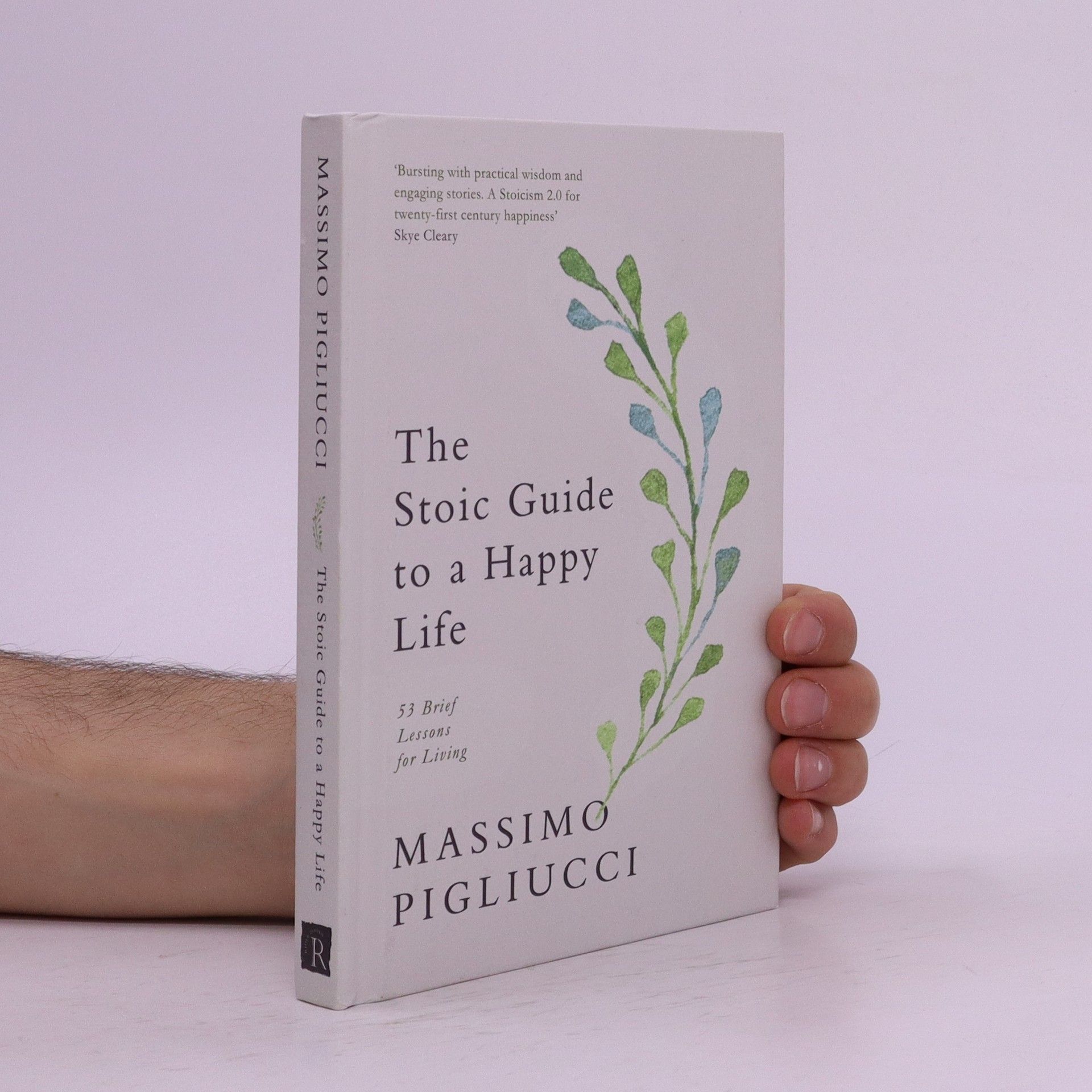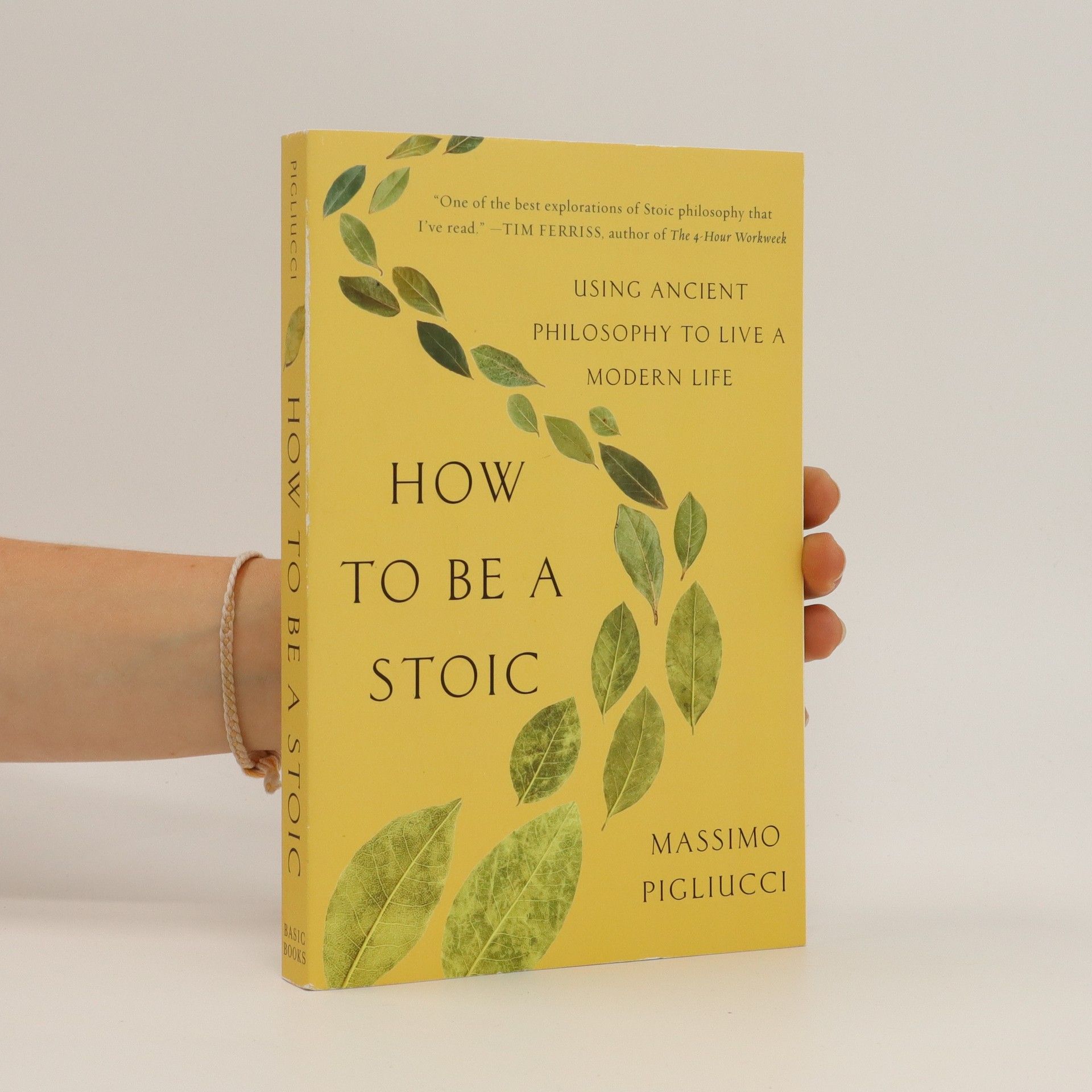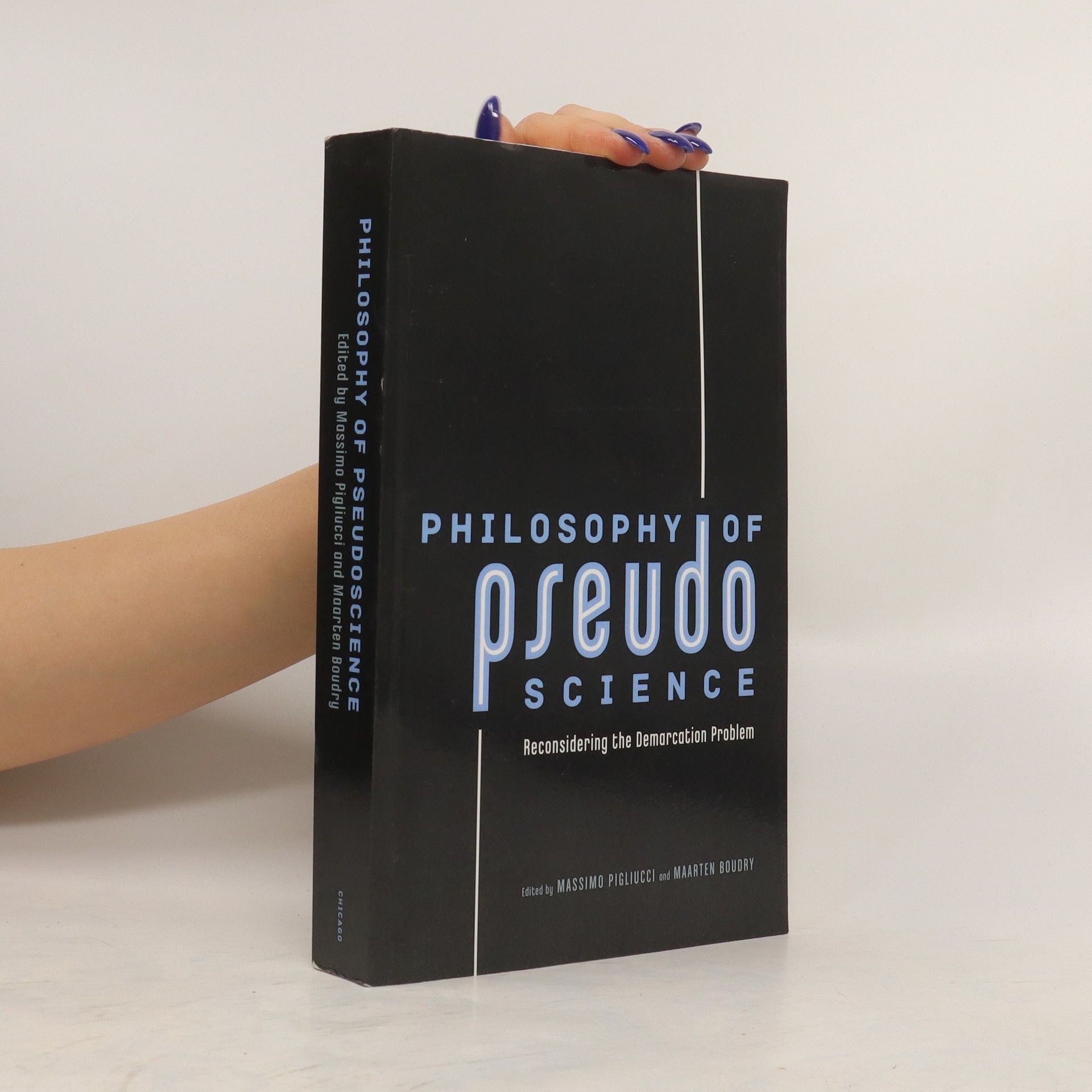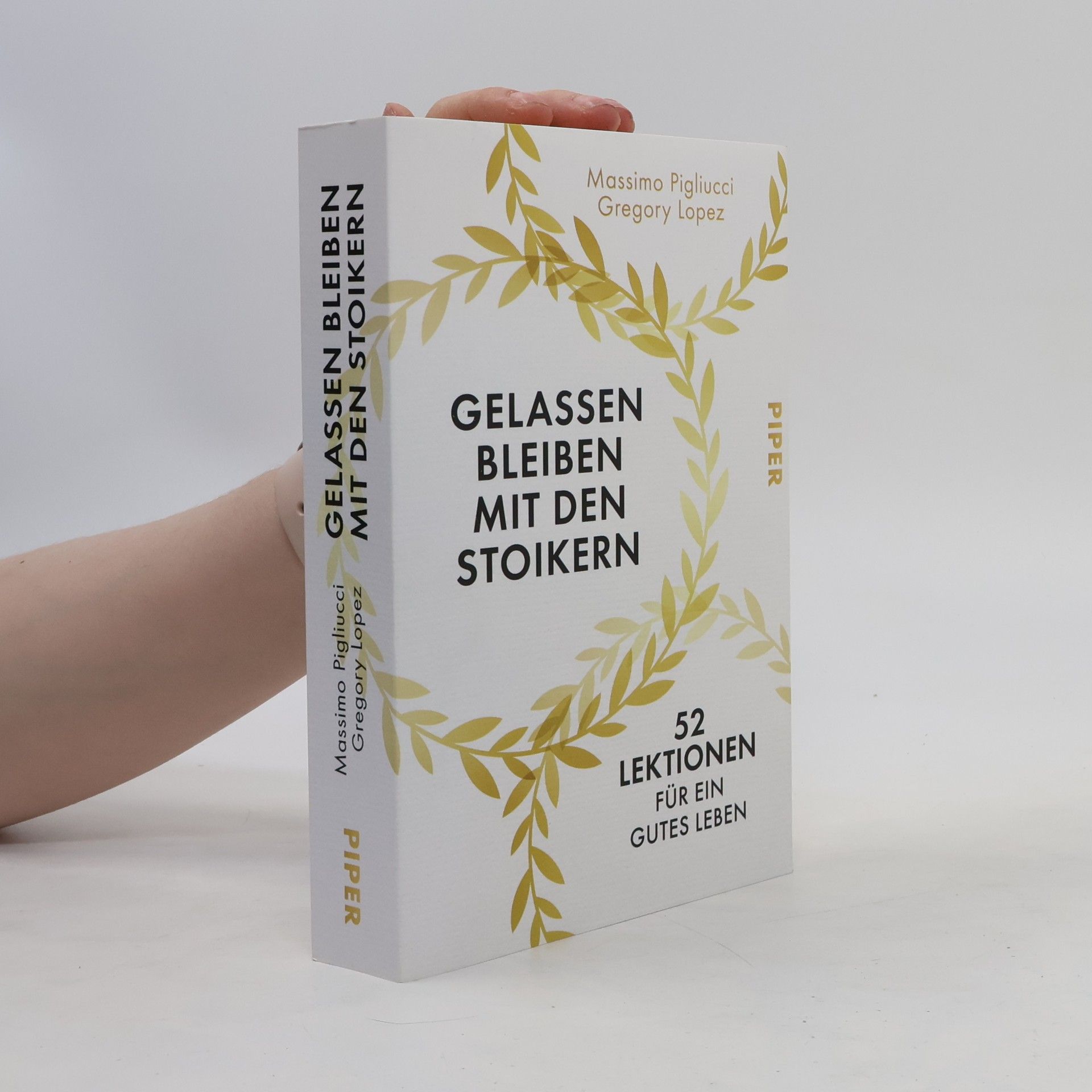What Socrates's greatest failure says about a 2,000 year old question: is it possible to teach ourselves and others to become better people?Can we make ourselves into better human beings? Can we help others do the same? And can we get the leaders of our society to care that humanity prospers, not just economically, but also spiritually? These questions have been asked for over two millennia and attempting to answer them is crucial if we want to live a better life and build a more just society.How to Be Good uses the story of Socrates and Alcibiades and examples from Aristotle, Marcus Aurelius and Machiavelli, alongside modern interpretations to explore what philosophy can teach us about the quest for virtue today. Whether we are statesmen or ordinary individuals Pigliucci argues that with a little work day by day we all have the power to pursue the timely and timeless art of living well.
Massimo Pigliucci Boeken
Het wetenschappelijke werk van Massimo Pigliucci duikt in de filosofie van de wetenschap en de aard van pseudowetenschap, waarbij hij kritisch de grenzen onderzoekt tussen empirische kennis en ongegronde beweringen. Hij houdt zich ook actief bezig met de studie en beoefening van het moderne stoïcisme. Via zijn essays en podcast biedt hij lezers en luisteraars inzichten in praktische filosofische principes voor een meer onderzocht leven.






How to Be a Stoic
- 288bladzijden
- 11 uur lezen
In the tradition of How to Live and How Proust Can Change Your Life, a philosopher asks how ancient Stoicism can help us flourish today Whenever we worry about what to eat, how to love, or simply how to be happy, we are worrying about how to lead a good life. No goal is more elusive. In How to Be a Stoic, philosopher Massimo Pigliucci offers Stoicism, the ancient philosophy that inspired the great emperor Marcus Aurelius, as the best way to attain it. Stoicism is a pragmatic philosophy that focuses our attention on what is possible and gives us perspective on what is unimportant. By understanding Stoicism, we can learn to answer crucial questions: Should we get married or divorced? How should we handle our money in a world nearly destroyed by a financial crisis? How can we survive great personal tragedy? Whoever we are, Stoicism has something for us--and How to Be a Stoic is the essential guide.
The Stoic Guide to a Happy Life
- 128bladzijden
- 5 uur lezen
In The Stoic Guide to a Happy Life philosopher Massimo Pigliucci offers a thoughtful, practical reinterpretation of Epictetus' 53 lessons for living a good life from his foundational Handbook. Each lesson offers a simple piece of wisdom to help tackle the challenges of daily life- from transforming the way you relate to colleagues, friends and loved ones to embracing the grief that follows loss.
How to Live a Good Life
- 256bladzijden
- 9 uur lezen
A collection of essays by fifteen philosophers presenting a thoughtful, introductory guide to choosing a philosophy for living an examined and meaningful life. Socrates famously said "the unexamined life is not worth living," but what does it mean to truly live philosophically? This thought-provoking, wide-ranging collection brings together essays by fifteen leading philosophers reflecting on what it means to live according to a philosophy of life. From Eastern philosophies (Daoism, Confucianism, and Buddhism) and classical Western philosophies (such as Aristotelianism and Stoicism), to the four major religions, as well as contemporary philosophies (such as existentialism and effective altruism), each contributor offers a lively, personal account of how they find meaning in the practice of their chosen philosophical tradition. Together, the pieces in How to Live a Good Life provide not only a beginner's guide to choosing a life philosophy but also a timely portrait of what it means to live an examined life in the twenty-first century. A VINTAGE ORIGINAL
A biologist-turned-philosopher shows how scientific discoveries can help resolve some of philosophy's longest-debated issues
A Field Guide to a Happy Life
- 160bladzijden
- 6 uur lezen
"As the Modern Stoicism movement has blossomed over the past decade, its practitioners and enthusiasts have struggled with some of the movement's stranger claims. Should we really be indifferent to death of a loved one, or to our own demise? Is it truly unacceptable to care about one's work? Should we really look to nature for moral guidance? And what role does Providence have in ordering human affairs? In [this book], philosopher and Stoic Massimo Pigliucci has embarked on an ambitious task: offering his own view how the teachings of the Stoics can be adapted to modern mores and knowledge, taking as his inspiration the classic epitome of ancient Stoicism, Epictetus' Handbook"--
What sets the practice of rigorously tested, sound science apart from pseudoscience? This title seeks to answer this question, known to philosophers of science as "the demarcation problem."
Gelassen bleiben mit den Stoikern
52 Lektionen für ein gutes Leben
In seinem Buch »Die Weisheit der Stoiker« hat der Philosoph Massimo Pigliucci die antike Kunst der Gelassenheit für unsere Zeit neu entdeckt. Passend dazu und doch völlig eigenständig lesbar kommt nun dieses Handbuch - eine praktische Anleitung , die uns den Stoizismus noch einmal näher bringt und gleichzeitig hilft, die schlauen Fragen und Gedanken von Epiktet, Seneca und Marc Aurel in die Tat umzusetzen: Was können wir im Leben beeinflussen und was nicht? Welche Ziele sollten wir anstreben und welche tunlichst vermeiden ? Wie gehen wir dabei mit unseren Ressourcen um, mit unserer Energie und unserer Zeit ? Das Buch ist unterteilt in 52 Lektionen , für jede Woche eine. Es wendet sich an alle, die nach einem Begleiter für einen glücklichen Alltag suchen.
Dlaczego ludzie wierzą w bzdury? Czym nauka różni się od pseudonauki? Jak odróżnić fakt od fantazji, lekarstwo od ściemy, wiedzę od bredni? BUJDA NA RESORACH to napisany przystępnym językiem przewodnik po metodologii naukowej oraz tak zwanym problemie demarkacji, czyli kwestii systematycznego odróżnienia nauki od tego, co tylko naukę udaje. Massimo Pigliucci – filozof, sceptyk i biolog ewolucyjny – poszukuje zdroworozsądkowej koncepcji nauki, aby wyposażyć czytelnika w osobisty „wykrywacz bredni”, który pozwoli mu zorientować się w zalewie sprzecznych informacji, fałszywych teorii i niepotwierdzonych hipotez. Opierając się na licznych studiach przypadków, autor omawia między innymi istotę i ograniczenia metody naukowej, rolę ekspertów w nauce i poza nią, narzędzia myślenia krytycznego oraz poglądy pseudonaukowe, których rosnąca popularność ma obecnie opłakane skutki. W dobie powszechnego dostępu do informacji i równie powszechnego kryzysu zaufania znajomość tych zagadnień staje się moralnym obowiązkiem, ponieważ, jak przekonuje autor we Wprowadzeniu: „[…] nauka jest zbyt potężna i zbyt ważna, pseudonauka zaś zbyt powszechna i zbyt szkodliwa, by otwarte społeczeństwo mogło w tej materii pozwolić sobie na ignorancję”.
Cómo ser un estoico
Utilizar la filosofía antigua para vivir una vida moderna
- 256bladzijden
- 9 uur lezen
Pese a lo que se suele pensar, el estoicismo no consiste en suprimir u ocultar nuestras emociones, sino en reconocerlas, reflexionar sobre lo que las causa y reconducirlas para nuestro propio bien. Lo que lo convierte claramente en una filosofía práctica. Porque en la búsqueda de respuestas a las preguntas más importantes de la vida el estoicismo nos proporciona muchas respuestas. Massimo Pigliucci nos ofrece algunos ejercicios espirituales prácticos para alcanzar la sabiduría y la serenidad, así como mantenernos fieles a nosotros mismos, con el objetivo de conducirnos correctamente por la vida a través del control racional de las pasiones y los impulsos más mundanos.


